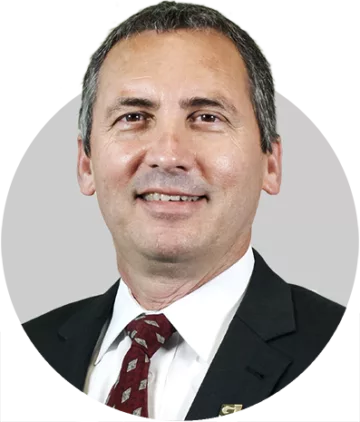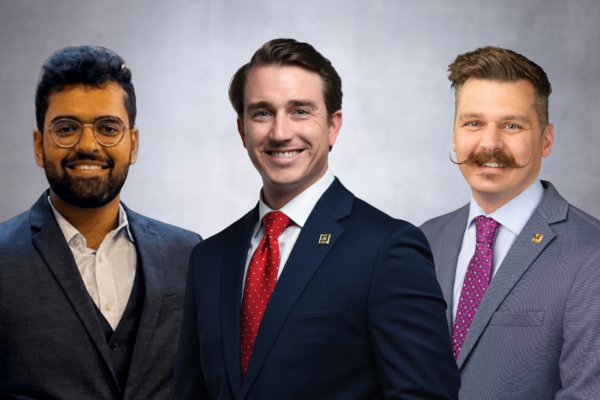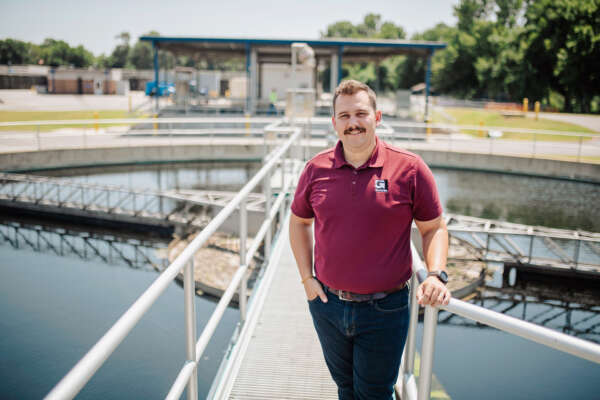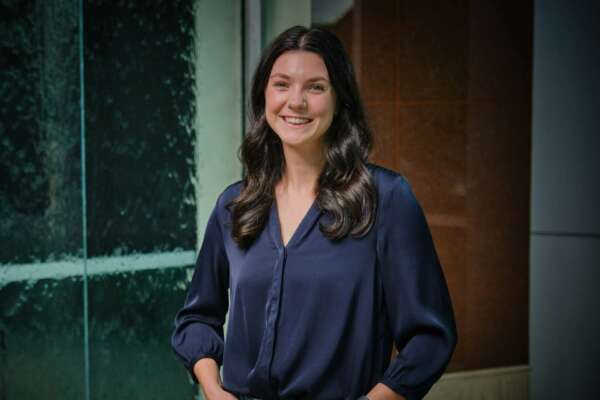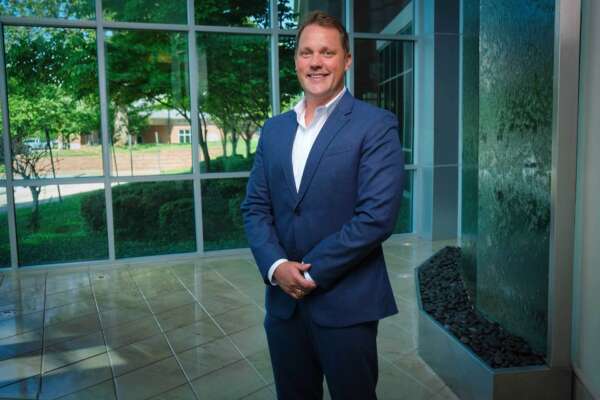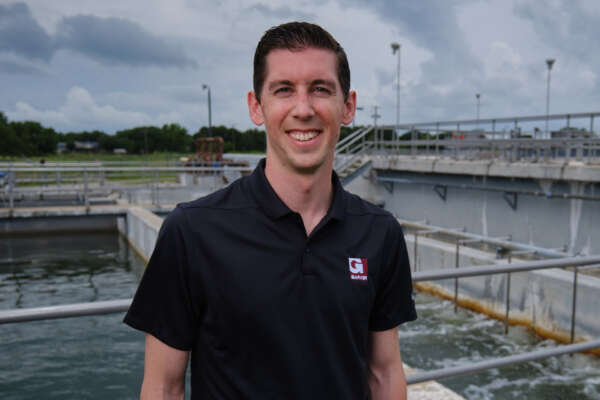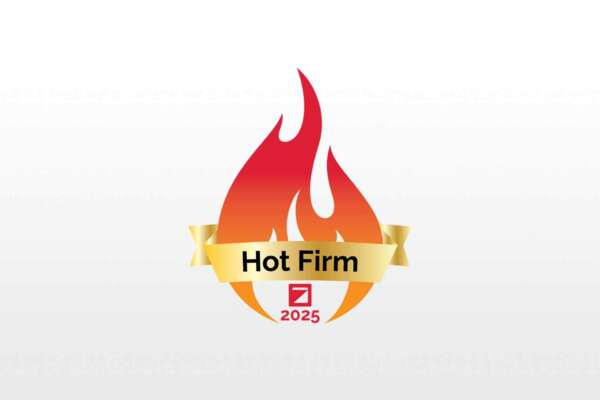Texas Water 2024
Fort Worth, Texas | Apr. 09-12
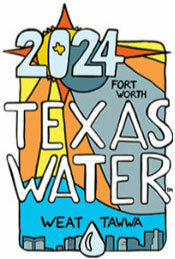
Texas Water, a joint annual conference of the Water Environment Association of Texas (WEAT) and the Texas Section American Water Works Association (AWWA), is the largest regional water conference in the United States. Each year, Texas Water includes technical sessions, exhibits, competitions, networking opportunities, and more. Garver supports the water and wastewater industry by maintaining involvement through WEAT and AWWA, and we’re excited to continue that involvement at this year’s Texas Water.
Technical Presentations
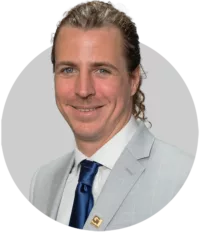
1:20-1:50 PM
Championing Micro-Municipalities in Rural Panama
In Panama, rural communities lack formal municipal programs to secure and manage reliable drinking water sources leading to shortages, waterborne illnesses, and shortened lifespan. While many communities have benefitted from ad hoc volunteer groups constructing infrastructure such as spring fed gravity fed aqueducts, the community was not taught how to manage and expand them. This presentation highlights the challenges these communities face and how international development groups can support them to self-advocate as they organize to receive formal federal support.
Speaker: Project Manager Chandler Crouch, PE

9:00-9:30 AM
The Operations Challenge Competition - A Workforce Development Program for Utilities
The Water Environment Federation Technical Exhibition and Conference (WEFTEC) Operations Challenge is a prestigious competition that serves as a cornerstone of workforce development in the wastewater industry. This presentation will give an overview of the Operations Challenge Competition Program, what it is about, and how it works. More importantly, it will explain the value of the competition from a workforce development perspective and the opportunity for utility staff career growth.
Speaker: Director of Water Services Jeff Sober, PE, BCEE
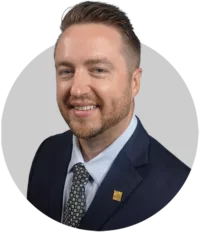
9:35-10:05 AM
Worst Case Scenario - Re-imagined Lift Station Design for Emergency Response
In late 2021, the Trinity River Authority of Texas (TRA) responded to two significant failures on a critical force main caused by franchise utility HDD strikes. Each of these failures took the lift station out of service for over 24 hours, while flows from TRA's customer cities continued to enter the wet well. With no way to stop the incoming flows, TRA developed a series of temporary storage measures at the lift station to keep wet well levels down while their on-call emergency pipeline contractor worked to repair the pipe failures. This presentation will reflect TRA's emergency management response to these strikes and how these events re-imagined TRA's lift station design approach.
Speaker: North Texas Water Infrastructure Leader Paul Banschbach, PE

9:35-10:05 AM
Brominated and Iodinated DBPs in Texas Water Systems
Regulatory and scientific focus on disinfection by products (DBPs) have been changing over time to species believed to be more toxic, including brominated and iodinated DBPs. It is believed that future revisions to the rule will aim at better control of these more toxic DBPs. This presentation will put the Texas scene of brominated and iodinated DBPs in the context of the national picture, as well as shedding light into the treatment changes that may be necessary to address this group of contaminants.
Speaker: Water Practice Leader Zaid Chowdhury, PhD, PE, BCEE
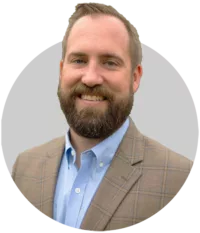
10:10-10:40 AM
Facing the Workforce Challenge Head On: Fort Worth Water Utility's Multi-Faceted Approach
Utilities across the state continue to face a growing three-part challenge: It is becoming increasingly difficult to attract, develop and retain highly qualified talent, we’ve experienced significant cultural changes in the labor market, and have an aging industry which will be eligible for retirement in the near future. Community partnership and dedicated workforce programs and initiatives can help navigate these pressing issues. This presentation will provide an overview of the efforts Fort Worth Water has taken to build diverse, partnership-based workforce programs, and will address the challenges, lessons learned, and detail how utilities across the state can take advantage of these same programs.
Speaker: Wastewater Treatment Business Development Leader Dylan Christenson, PhD, PE
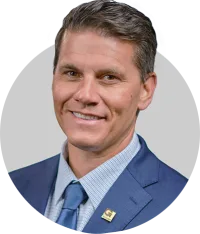
10:10-10:40 AM
Hydraulic Energy Recovery in Water Systems - How, When, and Where it Makes Cents
In Texas, and throughout the country, large water utilities service millions of people and deliver serval hundred million gallons per day of water to customers. Passed through delivery connection points, these turnouts offer a unique opportunity to recover the dissipated energy lost across the flow control valve while accomplishing the same operational function. This presentation will identify hydraulic energy recovery opportunities, types of micro-turbines that can be utilized, and case studies.
Speaker: Water Technology Leader Eric Dole, PE, PSAP
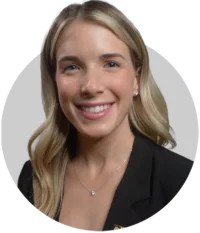
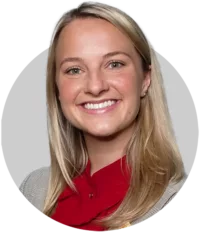
10:45-11:15 AM
Tapping into the Future Generation of Water Workers
The water sector plays a critical role in ensuring public health and protecting the natural environment. However, our industry is confronted with a pressing challenge – the convergence of aging infrastructure and a wave of retiring employees. Thousands of water workers are expected to retire in the coming years, leaving a huge gap to fill for utilities and other water employees to address. This presentation will highlight the significance of this issue and urge utilities and consultants to invest time and resources in workforce development as we navigate a complex and multifaceted issue.
Speakers: Project Engineer Riley Teague
Project Engineer Abigail Hall
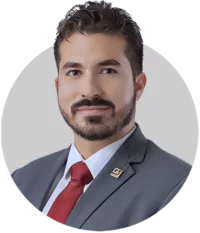
11:20-11:50 AM
Evaluating Alternative Treatment Technologies for a New Greenfield WWTP
Valley Municipal Utility District No. 2 in Rancho Viejoha is proactively steering growth, anticipated to double its service capacity by 2070, projecting to increase the demand for wastewater treatment over the next several decades. This presentation describes the decision-making steps VMUD2 is taking to determine the best treatment technologies for their new wastewater facility, taking into account the size of their system, the utility’s overall experience with existing facilities and treatment technologies, as well as staff’s capabilities and experiences.
Speaker: South Texas Water Team Leader Issac Huacuja, PE, CFM

1:10-1:40 PM
Cleansing the Flow Data: Unveiling the Power of Statistical Analysis for Masterful Wastewater Planning
Outliers in wastewater discharge monitoring reports for biochemical oxygen demand (BOD), chemical oxygen demand (COD), and total suspended solids (TSS), often seen as data points standing apart from the norm, present a critical dilemma in data analysis. This presentation addresses these outliers in wastewater data analysis and their critical impact. It emphasizes informed outlier management, context-aware decision making, and diverse outlier identification techniques, along with statistical methods which are recommended for enhanced data quality and less conservative city planning in wastewater management.
Speaker: Senior Project Manager Hasibul Hasan, PE

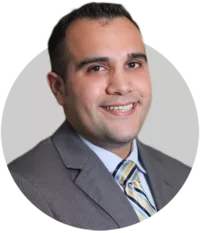
3:20-3:50 PM
The Stakes are High: Emergency Lift Station Rehabilitation in a World Heritage Site
The Acequia Lift Station is located in the San Antonio Missions National Historic Park, a part of San Antonio that is classified as a World Heritage site. It is also the largest lift station in the SAWS wastewater system and, with 35 years of service, is in need of rehabilitation. This presentation will discuss how Garver is assisting SAWS in the accelerated repair needs, specific challenges and issues that have been identified during the process, and project-specific accommodations that have been implemented to preserve environmentally or culturally sensitive areas.
Speakers: Project Engineer Elizabeth Lara
Infrastructure Design Team Leader Michael Salinas, PE
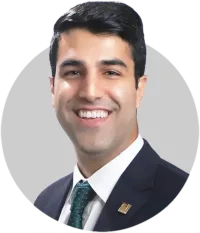
3:55-4:25 PM
Intelligent Water Systems 101: How Big Data can be Packaged into Small Improvements to Optimize Operations
The rising costs of chemicals, labor, power, and raw materials, along with advances in hardware and software, are creating the perfect storm for investigating and implementing intelligent water systems. By consolidating and analyzing the operational data that is collected every day, water treatment professionals have the ability to optimize operations, improve water quality, and reduce overall costs. This presentation provides a summary of historical research on intelligent water systems and modern-day solutions with the potential to improve various aspects of water treatment.
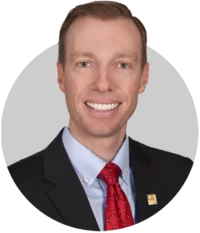
9:05-9:35 AM
Friendswood Resilience: An Operations-Driven Master Planning
The City of Friendswood embarked on a master plan to improve the resiliency and service for the water system, focused on improving resiliency through distribution system improvements, neighboring utility agreements, and operation troubleshooting. This presentation will discuss the synergy that can be achieved through holistic system solutions. Building resiliency into the system is the product of physical improvements, cooperative agreements, and reevaluating “standard” procedures.
Speaker: Southeast Texas Team Leader Wade Parks, PE, CFM
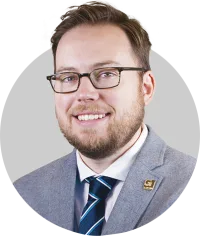
9:40-10:10 AM
You'll Get More Flies With Honey Than With PAA - Full-scale Disinfection Testing at the Hutto South WWTP
Disinfection at the Hutto South Wastewater Treatment Plant is currently performed at the existing multi-channel (UV) disinfection facility. But due to limited availability of critical components of the installed UV equipment, Hutto is adding a chemical disinfection system with Peracetic Acid (PAA) injected for E. coli inactivation ahead of the existing UV system to provide sequential disinfection. This presentation describes the value and application of PAA for extending the disinfection performance of aging UV equipment. Results of full-scale testing will be presented, along with a regulatory review and temporary permit development processes examined.
Speaker: Water Reuse Practice Leader Michael Watts, PhD, PE

10:55-11:25 AM
IFAS - Not So Fast! Process Changes to Limit Impacts
Integrated fixed film activated sludge (IFAS), a common wastewater treatment technique in the Midwest, is a relatively uncommon technology used in municipal wastewater treatment in Southeast Texas. As the cost of construction materials and labor has surged in recent years, IFAS is a cost-effective retrofit solution for municipalities without the direct need for additional tanks. This presentation will discuss the unique way IFAS is being proposed as a practical solution for the City of Sugar Land as it faces a surge in population growth and capability demands.
Speaker: Southeast Texas Team Leader Wade Parks, PE, CFM
